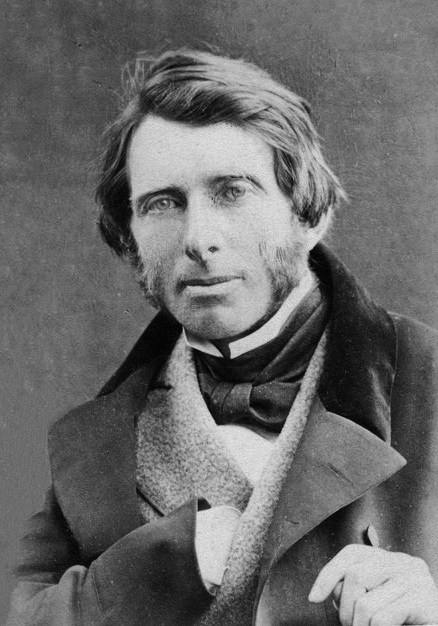Frases célebres de John Ruskin
Fuente: [Amate Pou], Jordi. Paseando por una parte de la Historia: Antología de citas. Editorial Penguin Random House Grupo Editorial España, 2017. ISBN 9788417321871, p. 117.
Fuente: [Marcelino Aranda], Mariana; [Ramírez Herrera], Dania. Administración de la Calidad: Nuevas Perspectivas. Grupo Editorial Patria, 2014. ISBN 9786074388169, p. 12.
John Ruskin Frases y Citas
“La sinceridad es la raíz de todas las virtudes.”
Fuente: [Muñoz], Asun. El baúl de los sueños. Editorial Palibrio, 2014. ISBN 9781463369644.
“La misma esperanza deja de ser felicidad cuando va acompañada de la impaciencia.”
Variante: La propia esperanza deja de ser una felicidad cuando va acompañada de la impaciencia.
Fuente: [Palomo Triguero], Eduardo. Cita-logía. Editorial Punto Rojo Libros, S.L. ISBN 978-84-16068-10-4, p. 120.
Fuente: [Barón Escamilla], Carlos. AC: Arquitectura de containers. Editorial Lulu.com, 2014. ISBN 9788461693177, p. 10.
“Más vale una muleta que la pérdida de un miembro.”
Ruskin condenaba la «restauración en estilo» de Viollet-le-Duc y sus seguidores en Inglaterra de los monumentos y edificios antiguos; consideraba la restauración tan imposible «como resucitar a los muertos», y sólo admitía intervenir para paliar preventivamente que el monumento se disgregue, o consolidar con vigas cuando se hunda, y de ahí la expresión de la cita.
Fuente: [García Morales], M.ª Victoria; Victoria [Soto Caba], Joaquín [Martínez Pino]. El Estudio del patrimonio cultural. Editorial Centro de Estudios Ramon Areces, S. A., 2017. ISBN 9788499612140, p. 185.
John Ruskin: Frases en inglés
Fuente: Dictionary of Burning Words of Brilliant Writers (1895), P. 267.
Lecture II, section 35
The Eagle's Nest (1872)
Volume II, chapter VI, section 12
The Stones of Venice (1853)
Praeterita, volume I, chapter IX (1885-1889)
Sesame and Lilies
A Joy for Ever, note 6 (1857)
The natural and right system respecting all labour is, that it should be paid at a fixed rate, but the good workman employed, and the bad workman unemployed. The false, unnatural, and destructive system is when the bad workman is allowed to offer his work at half-price, and either take the place of the good, or force him by his competition to work for an inadequate sum.
Essay I: "The Roots of Honour," section 29
Unto This Last (1860)
you ask. "Well, I'll get more," he says. Just as at cricket, you get more runs. There's no use in the runs, but to get more of them than other people is the game. So all that great foul city of London there, — rattling, growling, smoking, stinking, — a ghastly heap of fermenting brickwork, pouring out poison at every pore, — you fancy it is a city of work? Not a street of it! It is a great city of play; very nasty play and very hard play, but still play.
The Crown of Wild Olive, lecture I: Work, sections 23-24 (1866)
“All of one's life is a music, if one touches the notes rightly and in time.”
Lecture IV: The Crystal Orders, section 35
The Ethics of the Dust (1875)
“To make your children capable of honesty is the beginning of education.”
Letter VIII: Things Written, section 33
Time and Tide (1867)
